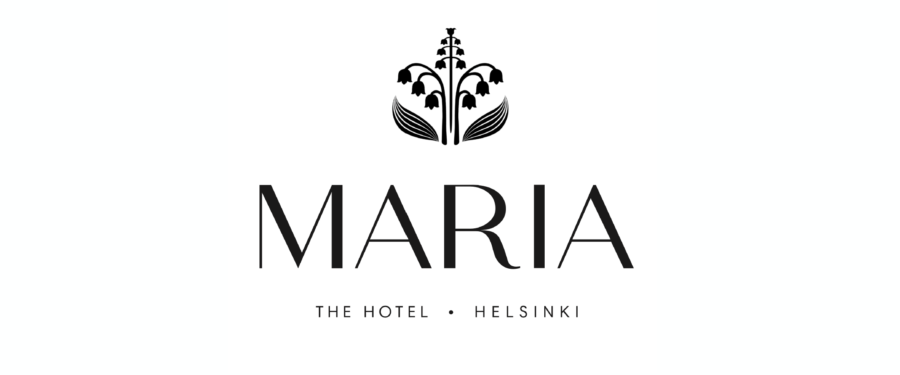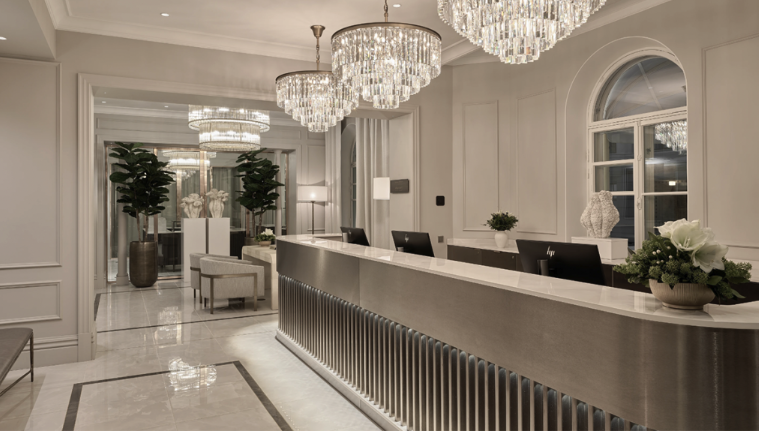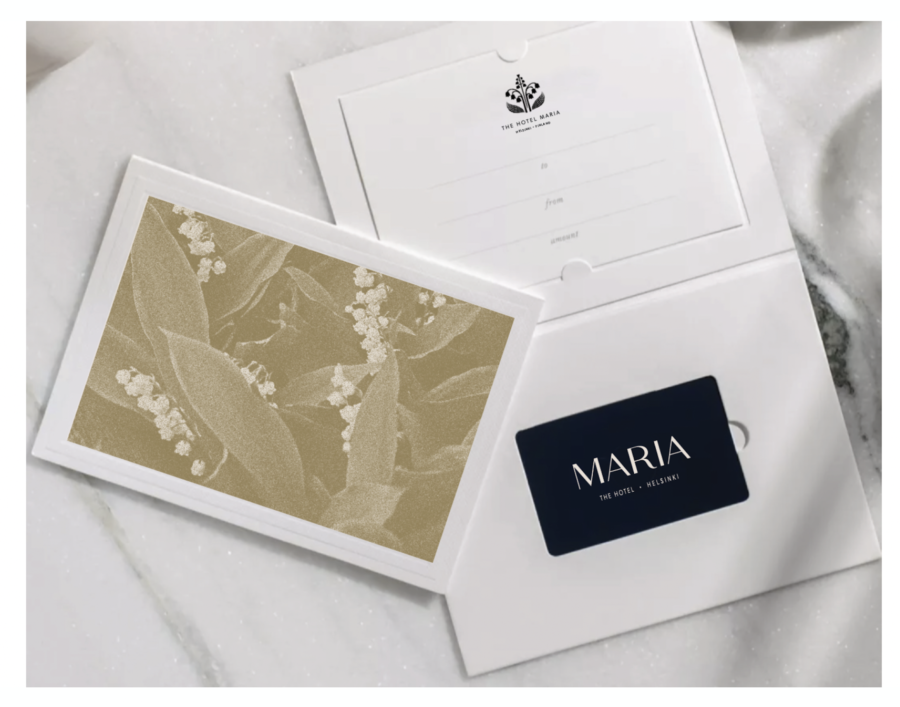Born in 1847, Maria Feodorovna was Princess Dagmar of Denmark, Empress of Russia, and wife of Tsar Alexander III. But today, she remains a beloved figure in Finland, a country she often visited to escape the pressures of Russian royal life. In Helsinki, modern tributes to Feodorovna include a street and hospital named in her honor. Now, a hotel has joined that list.
In December, the Hotel Maria—a member of Preferred Hotels & Resorts’s prestigious Legend Collection—became Finland’s first true five-star property. The 117-room historic structure in Helsinki’s upscale Kruununhaka neighborhood is tailored to attract guests both royal, and not. Uncompromisingly contemporary Nordic interiors were created by head designer Jana Sasko and Puroplan, one of Finland’s top interior-design firms. But the aim of these distinctively Finnish finishes was to produce a hotel that would appeal to the toughest customer: the American.
“We had the understanding that it’s American luxury consumers who are the most demanding ones, and if we can please them, everyone else [is] happy, too,” said Samppa Lajunen, the hotel’s founder and a former three-time Olympic gold medalist in Nordic combined events.
To that end, Lajunen carved out 38 suites, with custom furnishings from RH and rich fabrics, all in a calming neutral palette. Against it, unique features such as original wooden beams and crown molding shine. Spa suites come with private Finnish saunas or steam rooms, large soaking tubs, and marble walk-in showers. The rooms are also particularly large for a European hotel, averaging 460 square feet. But the best Imperial Suite is Las Vegas in scale: With two bedrooms, two bathrooms, and 1,772 square feet, it also includes butler service, a steam room, a living area with a gas fireplace, a library, and a dining room for private dining experiences. Rates range from roughly $425 to around $6,500 for the Imperial Suite.
Throughout the guest rooms and common spaces the hotel shows off with 159 custom chandeliers. In bar Maria, a dazzling dangler by British luxury design firm Timothy Outlon evokes the magic of Nordic winters, with tingling crystal that sparkles like icicles above the white marble counter.
In another interesting link to Feodorovna, the hotel’s facade—which combines four architecturally and historically prominent buildings—dates to 1885, the year Alexander III gave his wife the first Fabergé egg as an Easter gift. The on-site boutique features egg-inspired jewelry and other high-end merchandise; across the hall, guests can take a peek at Lajunen’s Olympic medals beautifully displayed.
Speaking of sports and their aftermath, the hotel’s strongest emphasis is wellness. The serene Maria Spa is open to hotel guests and the public for a day fee and is already becoming a locals’ favorite. Inside there is a large coed Finnish sauna, cold and warm plunge pools, and a soaring, greenery-rich atrium where guests can lounge pre- or post-treatment.
On the culinary front, fine-dining restaurant Lilja—helmed by chef Ville Rainio, whose pedigree includes several Michelin-starred restaurants—features French-inspired dishes with Finnish influence (think: reindeer sirloin).
Lajunen is a prominent real-estate developer, but the hotel is his first hospitality project and came with considerable challenges, starting with the onset of the pandemic soon after the deal to purchase the historic buildings closed. The renovation process was highly complex, requiring collaboration across multiple organizations and agencies, including the Finnish Heritage Society. In addition, staff must adhere to some 500 quality standards across Preferred Hotels and Forbes Consulting Group, another partner in the project, according to commercial director Heli Mende. But, despite the obstacles, Lajunen’s focus was on winning hospitality gold.
“[Even] when I won Olympic gold medals, I knew that it’s possible to improve, so it’s [about] always improving and looking for perfection, but never achieving perfection,” Lajunen says. “So I have to be happy with excellence.”
See our full case study.
Original article published in Robb Report, March 22, 2024






